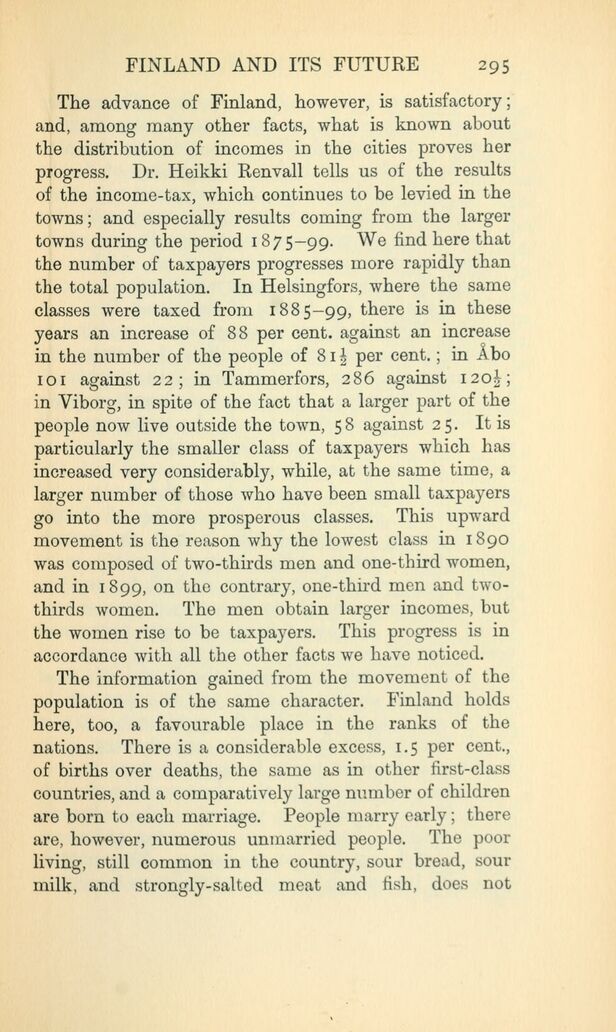
Full resolution (JPEG) - On this page / på denna sida - XI. The Government of Finland and its Future

<< prev. page << föreg. sida << >> nästa sida >> next page >>
Below is the raw OCR text
from the above scanned image.
Do you see an error? Proofread the page now!
Här nedan syns maskintolkade texten från faksimilbilden ovan.
Ser du något fel? Korrekturläs sidan nu!
This page has been proofread at least once.
(diff)
(history)
Denna sida har korrekturlästs minst en gång.
(skillnad)
(historik)
The advance of Finland, however, is satisfactory;
and, among many other facts, what is known about
the distribution of incomes in the cities proves her
progress. Dr. Heikki Renvall tells us of the results
of the income-tax, which continues to be levied in the
towns; and especially results coming from the larger
towns during the period 1875-99. We find here that
the number of taxpayers progresses more rapidly than
the total population. In Helsingfors, where the same
classes were taxed from 1885-99, there is in these
years an increase of 88 per cent, against an increase
in the number of the people of 81½ per cent.; in Åbo
101 against 22; in Tammerfors, 286 against 120½;
in Viborg, in spite of the fact that a larger part of the
people now live outside the town, 58 against 25. It is
particularly the smaller class of taxpayers which has
increased very considerably, while, at the same time, a
larger number of those who have been small taxpayers
go into the more prosperous classes. This upward
movement is the reason why the lowest class in 1890
was composed of two-thirds men and one-third women,
and in 1899, on the contrary, one-third men and
two-thirds women. The men obtain larger incomes, but
the women rise to be taxpayers. This progress is in
accordance with all the other facts we have noticed.
The information gained from the movement of the
population is of the same character. Finland holds
here, too, a favourable place in the ranks of the
nations. There is a considerable excess, 1.5 per cent.,
of births over deaths, the same as in other first-class
countries, and a comparatively large number of children
are born to each marriage. People marry early; there
are, however, numerous unmarried people. The poor
living, still common in the country, sour bread, sour
milk, and strongly-salted meat and fish, does not
<< prev. page << föreg. sida << >> nästa sida >> next page >>